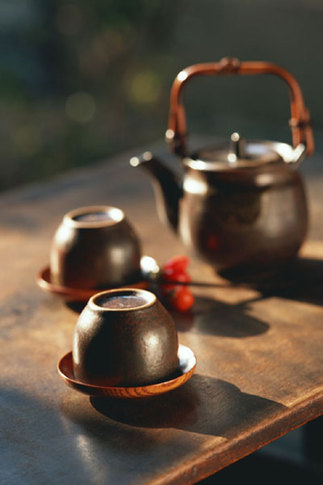 |
|||
|
|||
Buddhism and tea
(www.chinadaily.com.cn)
Contribution to tea culture
In history, Buddhism made great contributions to the development of tea and tea culture. They are illustrated as follows:
1. Make tea-drinking fashionable
Buddhism holds that tea-based virtues are integrated with Zen. Therefore, monks are encouraged to drink tea when cultivating themselves with Zen. Since Buddhism followers are spread all over China and because Buddhists roam everywhere, Buddhism is influential in promoting tea drinking.
2. The mood of tea-drinking
Buddhism encourages the mood of drinking tea. In the course of drinking tea, people would “calm the mind”, “try to acheive self-enlightenment”, and fuse the individual with nature and the universe, adhering to Zen practices. It is said that by drinking tea, people “attain the Tao”, “revive from sleep and confusion,” “part with annoyance,” and “regain consciousness.” Tea-drinking is thus associated with the “great awakening” of Buddhism.
3. Promote tea production
As the proverb goes, “famous mountains are home to renowned temples and famous tea.” Buddhism advocates for tea and contributes to the popularization of tea production. Huiyuan, a famous monk of Donglin Temple in Lushan Mountain, entertained Tao Yuanming, an idyllic poet of Jin Dynasty, with tea he personally planted, and recited poems and Buddhist scriptures all day long.



